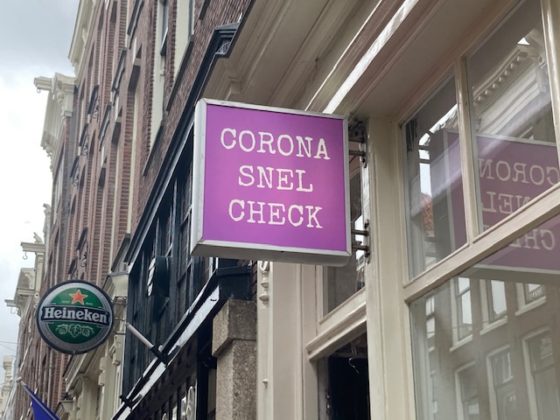MPs debate ‘test for entry’ plans amid claims of chaos


The hospitality industry, museums and cinemas have all said they do not see a future in the government’s plans to open up society by using negative coronavirus tests.
MPs will debate the cabinet’s plans on Thursday afternoon, but the organisations say that requiring people have a negative test to sit at a pavement café or visit an exhibition is a step too far for many.
Pilot events in April also showed that there is widespread reluctance to have a test before an outing. Some 60,000 of the 200,000 tickets for the ‘test voor toegang’ events went unsold, broadcaster NOS reported at the weekend, and the Efteling cancelled its participation because of the poor turnout. Just 16,000 people bought a museum ticket, but there were 37,000 available.
Allowing museums and sports events to reopen to people with a negative test is a key part of the government’s five step plan to return to normal.
But MPs are concerned at the need for the testing system, given that within a few months most of the population will have been vaccinated. And they are also unhappy with plans to make people pay up to €7.50 per test from July.
Chaos
Meanwhile, the NRC reports that there is ‘chaos’ on the market for official tests now that seven other companies have won concessions from the Stichting Open Nederland foundation which is in charge of the pilots.
Newly set up companies with little experience in healthcare have now been given the job of setting up dozens of test centres all over the country, the paper said.
A German company which delivers services to armies and whose director lives in Dubai has won the contract for testing in Utrecht and Flevoland, the paper said. A supermarket manager will run testing in the Amsterdam region, while in the east of the country a company which provides online healthcare services and a bar owner will be organising the system there.
Challenge
‘It is an enormous challenge but that makes it interesting,’ Jeroen de Jong from Virusspeedcheck told the paper. He worked in advertising and corporate events before jumping into the commercial coronavirus test market last year.
‘People were asking exorbitant amounts of up to €250 per test,’ he said. ‘We offered tests for €59 and within a month that had dropped to €49.’
De Jong will now be responsible for testing in Rotterdam, parts of Zuid-Holland, West Brabant and Zeeland. His company currently has five test centres but will have to build up at least 10 in the coming weeks for the official ‘test voor toegang’ events.
Dispute
Lead Healthcare, which carried out the testing for the April events, is still embroiled in a dispute with SON over the bill.
The FD said last month SON is refusing to pay the €35m bill for setting up and organizing the test centres – based on an agreed fee of €30 per person, excluding the actual test itself.
That fee, charged by sole provider Lead Healthcare, was based on calculations by EY and Deloitte. However, research by purchasing advisory group Procurance has suggested €8.92 per test would be a more reasonable figure, the FD said
The government has set aside €1.1bn to fund the projects.
Thank you for donating to DutchNews.nl.
We could not provide the Dutch News service, and keep it free of charge, without the generous support of our readers. Your donations allow us to report on issues you tell us matter, and provide you with a summary of the most important Dutch news each day.
Make a donation